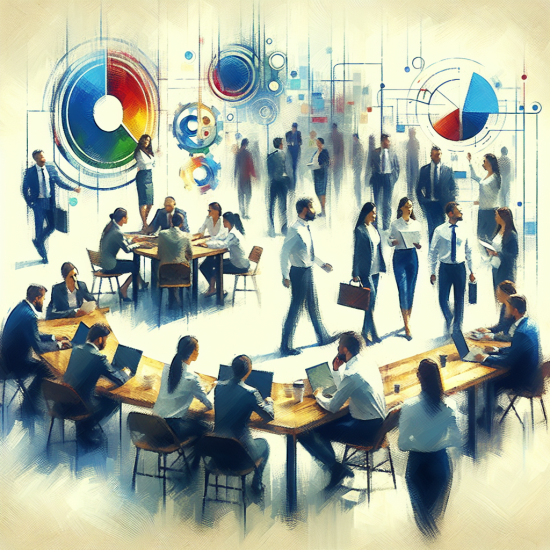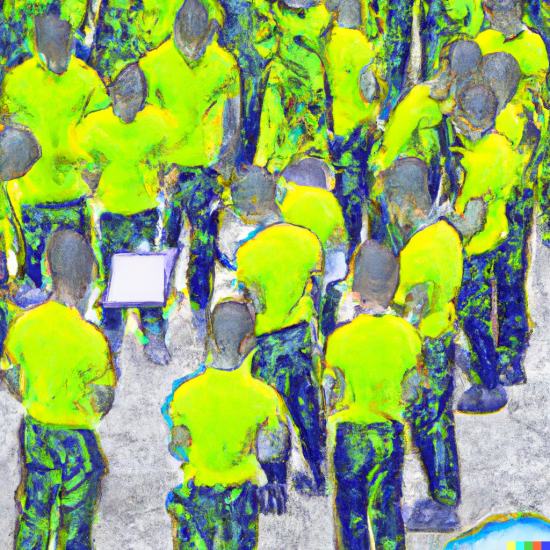For decades, the debate about decision-making has revolved around the individual versus the group. Groups were often seen as better for solving complex problems, leveraging diverse perspectives, and minimizing bias. Individuals, on the other hand, were valued for their speed, creativity, and domain expertise. But with the rise of artificial intelligence, this balance is shifting—dramatically.
AI isn’t just a tool; it’s a transformative force that’s changing how decisions are made. While AI has its role in augmenting group decision-making, its most profound impact may be in empowering the individual. By providing access to vast amounts of data, sophisticated analysis, and near-instant insights, AI is enabling individuals to make decisions that were once the sole domain of teams or committees.
AI Augments Individual Expertise
In traditional decision-making models, individuals often struggled with limited information and cognitive biases. Even experts had to rely on gut instincts or incomplete data. AI changes this equation. Tools powered by AI can process enormous datasets, identify patterns, and generate insights that enhance human decision-making.
For example:
- Medical Diagnosis: AI systems like IBM Watson analyze thousands of medical cases and research papers in seconds, offering recommendations that allow doctors to make faster and more accurate diagnoses.
- Stock Trading: I’ve built simple experimental tools to find patterns between crypto, US dollar rates and market indexes etc using sophisticated modeling techniques that I will never understand.
With AI, individuals can achieve the depth and breadth of knowledge that previously required entire teams.
Speed Meets Precision
One of the historical advantages of individuals over groups has been speed. Groups, by nature, require coordination, discussions, and consensus-building. AI amplifies this strength for individuals by not only speeding up processes but also increasing precision.
Take crisis management, for instance. An AI-equipped emergency responder can quickly assess risks, simulate outcomes, and determine the best course of action—all in real time. In this way, AI removes the bottlenecks traditionally associated with decision-making, allowing individuals to act decisively and accurately.
Democratizing Expertise
Groups often excel because they bring together diverse expertise. However, access to expertise has always been a limitation for individuals. AI disrupts this by democratizing access to knowledge.
Examples include:
- AI Tutors: I’ve used ChatGPT’s myGPT abilities to build tools to tutor my son in topics from Science to Geography
- Design Thinking: Again, I’ve built a number of excellent tools along the product journey, from Product Vision to LeanStartup etc.
AI allows individuals to tap into a collective knowledge base, simulating the benefits of a group without requiring the physical presence of others.
Reducing Bias in Individual Decisions
One argument against individual decision-making has always been the risk of cognitive biases—confirmation bias, anchoring, and availability bias, to name a few. AI provides a counterbalance. Machine learning models, trained on diverse datasets, can flag inconsistencies, offer alternative perspectives, and challenge human assumptions.
For instance:
- Recruitment: AI tools help hiring managers make fairer decisions by analyzing candidates based on skills and experience rather than unconscious preferences.
- Customer Insights: AI-driven analytics tools reveal patterns in customer behavior that individuals might overlook, helping marketers make more objective decisions.
AI acts as a “bias checker,” ensuring individuals base their decisions on facts rather than flawed intuition.
Replacing Groups in Complex Problem-Solving
Traditionally, groups were essential for solving complex problems due to their diverse perspectives. But AI is beginning to replace this function. Machine learning algorithms can simulate countless scenarios, process diverse datasets, and even generate creative solutions.
Consider product development. What once required teams of engineers, designers, and marketers can now be tackled by an individual using AI tools like:
- Generative Design: AI algorithms create multiple design iterations, optimizing for factors like cost, performance, and sustainability.
- Natural Language Processing: Tools like ChatGPT help individuals write marketing copy, draft technical documentation, and even analyze user feedback—all without a team.
While AI doesn’t replicate human creativity, it provides the breadth of perspectives that groups traditionally offered, making it possible for individuals to achieve similar results.
Challenges of Group Dynamics Amplified by AI
AI doesn’t just empower individuals—it highlights the inefficiencies of group decision-making. Groups are prone to delays, groupthink, and interpersonal conflicts. AI, when paired with an individual, bypasses these hurdles entirely.
For example, in meetings where decisions are delayed by endless discussions, an individual equipped with AI can provide data-driven insights to cut through the noise. This leads to faster, more confident decision-making.
From Collaboration to Competition
The rise of AI is also shifting the dynamics between individuals and groups. In workplaces, empowered individuals no longer depend on teams to achieve their goals. This autonomy can lead to competition rather than collaboration.
Consider software development:
- A solo developer using AI-assisted coding tools like can complete projects that once required entire teams.
- Writers and marketers using generative AI can produce high-quality content faster than ever, reducing the need for collaborative efforts.
While this independence is empowering, it also raises questions about the future of teamwork in AI-driven environments.
The Blurring Line Between Individual and Group
Interestingly, AI is also blurring the line between individual and group decision-making. AI tools act as collaborators, simulating the benefits of group dynamics for individuals. A solo entrepreneur using AI for market analysis or customer segmentation is effectively leveraging collective intelligence, but through a machine rather than humans.
This creates a hybrid model where individuals retain autonomy while benefiting from group-like insights. In essence, AI becomes the group, offering a mix of diversity, pattern recognition, and synthesis.
The New Role of Groups
While AI empowers individuals, groups still play a crucial role, but their function is evolving. Instead of being the primary decision-makers, groups now focus on validating AI-driven decisions, providing ethical oversight, and ensuring accountability.
For example:
- In healthcare, AI might recommend a treatment plan, but a team of doctors reviews and approves it.
- In business, AI might identify strategic opportunities, but leadership teams evaluate them for feasibility and alignment with organizational goals.
This shift positions groups as moderators and decision validators rather than creators of the decision itself.
Conclusion: The Rise of the Augmented Individual
AI is undeniably disrupting the long-standing balance between individual and group decision-making. By providing individuals with access to data, reducing biases, and simulating group-like perspectives, AI is leveling the playing field.
Yet, this doesn’t mean groups are obsolete. Instead, their role is transforming to complement AI-empowered individuals. The challenge moving forward will be finding the right balance—leveraging the speed and creativity of individuals while ensuring the oversight and accountability that groups provide.
As AI continues to evolve, so too will our understanding of decision-making. The future is neither individual nor group—it’s a hybrid world where humans, aided by machines, make smarter, faster, and more impactful decisions.
Final Point: AI works best as a partner to someone who’s already skilled. A great tool in the hands of an untrained person can lead to bad decisions faster than ever. In Agile, we often talk about empowering teams, but we also recognize the importance of expertise. The same applies to AI. It enhances what you already bring to the table—it doesn’t replace judgment or experience.


